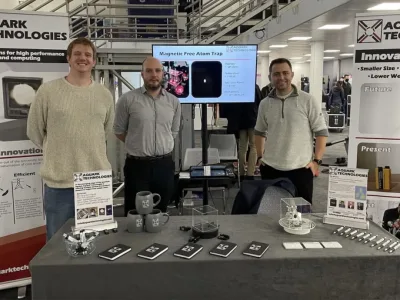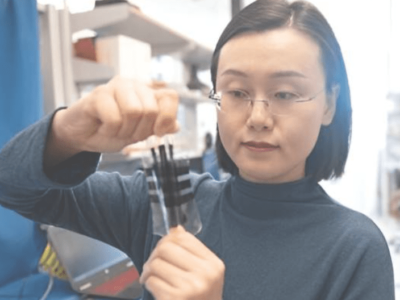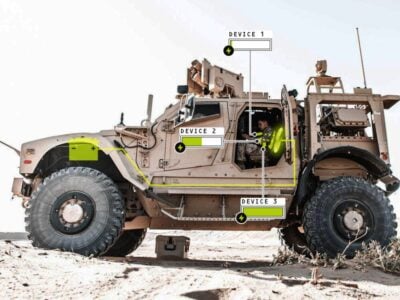
STMicroelectronics is looking at the development of an AI chip using analog in-memory computing with its resistive phase change memory.
In the plenary session of the ISSCC conference, Marco Cassis, president of ST’s Analog, MEMS and Sensors Group, looked at the various AI technologies for sensors. He rules out spiking neural network chips, also called neuromorphic, as not mature, saying current convolutional neural networks can tap into reduced precision and semiconductor scaling to get more performance. However these CNN devices struggle with power consumption and memory bandwidth challenges that get in the way of scalability.
- Eta adds spiking neural network support to MCU
- NASA looks to BrainChip’s spiking neural network chip for space
- Neuromorphic processor designer appoints EDA veteran
“To overcome this limitation is to partially or completely move the computation to the memory,” he said. “In Memory Computing can bring big benefits, 100x densities and efficiencies compared to current state of the art solutions. Here an especially promising avenue is the use of non volatile resistive memory devices to perform computations in the memory itself.
“For AI applications, phase change memory (PCM) is a natural candidate because the very small cell size allows a very high computational capacity. In additional PCM is already mature with proven manufacturability and reliability that can lead to an earlier introduction of an industrial proven analog IMC solution,” he said.
- Axelera shows DIANA analog in-memory computing chip
- Test chip created for Analog in Memory Computing
- MEMs sensors combine AI and signal processing
This follows ST’s launch of a binary neural network AI accelerator combined on the same silicon as a MEMS sensor to provide more localised analysis.
Samsung has also launched a chip using magnetic RAM (MRAM) for digital in-memory computing.
Related AI articles
- Battle for the AI toolflow
- NanoEdge AI studio optimized for the STM32 dev boards
- Schneider uses AI on ST MCU for people counter
Related digital ICM articles
- First In Memory Computing chip for GDDR6
- sureCore develops in-memory computing for edge AI
- Samsung uses MRAM for AI in-memory computing
Other articles on eeNews Europe
- imec details flexible 6502 plastic processor
- Porotech raises $20m for microLED production
- Bosch to expand semiconductor fab in Reutlingen again
- Paper identifies 6G use cases
 If you enjoyed this article, you will like the following ones: don't miss them by subscribing to :
eeNews on Google News
If you enjoyed this article, you will like the following ones: don't miss them by subscribing to :
eeNews on Google News


